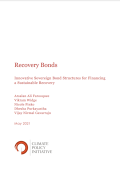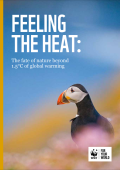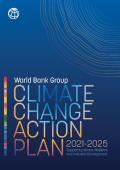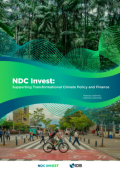
This paper assesses the potential for recovery bonds to help sovereigns raise capital to fund a sustainable and climate-resilient post-COVID recovery. As climate impacts become more severe, countries need targeted approaches to capital borrowing and deployment that is designed to decrease emissions, increase renewable energy distribution and other climate mitigation and adaptation solutions, and create long-lasting green jobs for a secure economy.

In this report, the World Wide Fund for Nature highlights 12 species that are experiencing the devastating impacts of climate change, and outlines how their future depends on humanity’s urgent response to the environmental crisis.

This report aims to advance the climate change aspects of the World Bank's green, resilient and inclusive development (GRID) approach, which pursues poverty eradication and shared prosperity with a sustainability lens. Specifically, the action plan supports countries and private sector clients to maximize the impact of climate finance, aiming for measurable improvements in adaptation and resilience and measurable reductions in greenhouse gas emissions.

This paper describes three products to support governments to tackle challenges and scale up action towards a climate aligned and sustainable development path.
This report assesses the potential for results-based finance to expand post-COVID recovery funds while improving sustainability efforts. By linking financial rewards to climate objectives, RBF enables innovative financing arrangements that can accelerate funding from the private sector.
